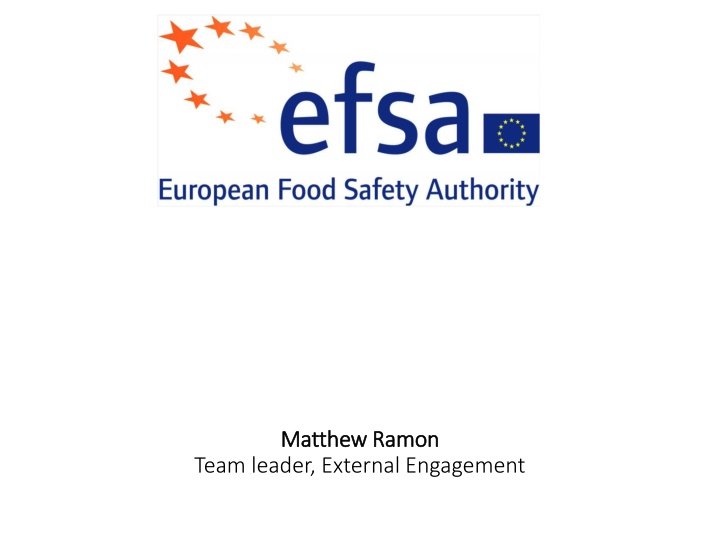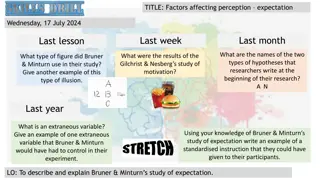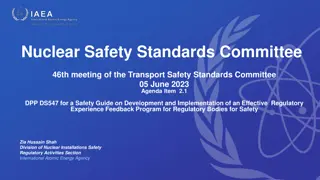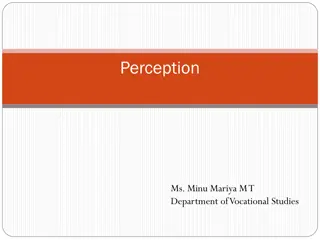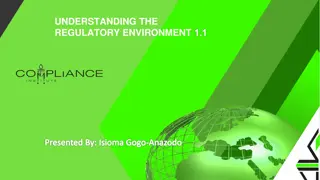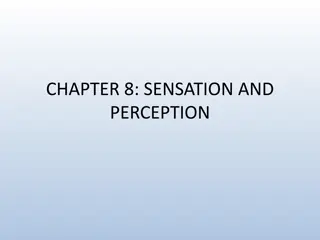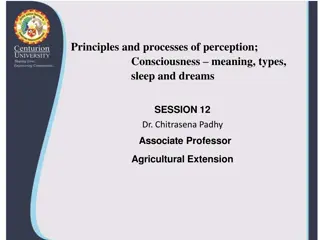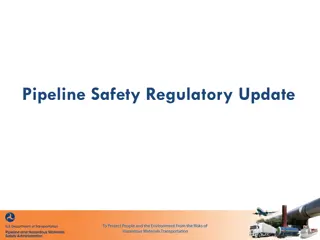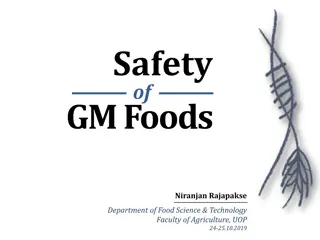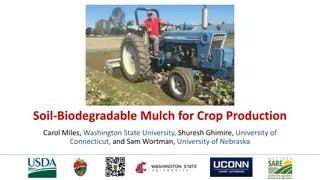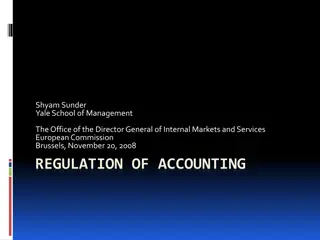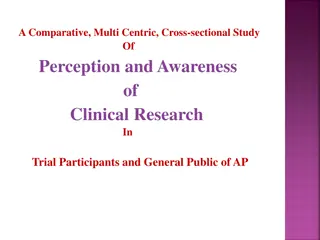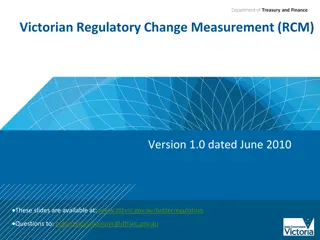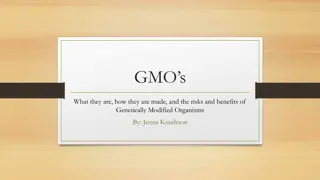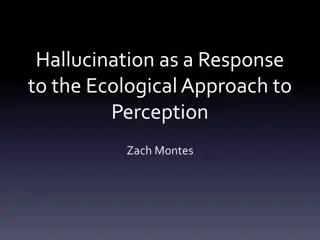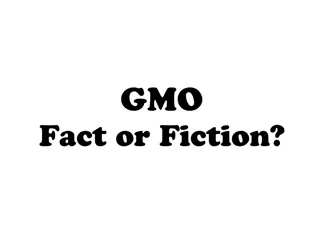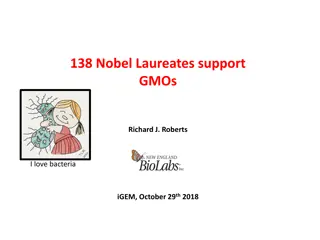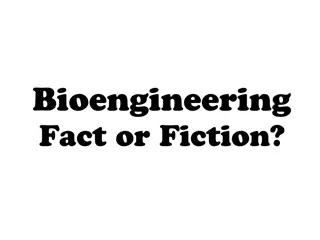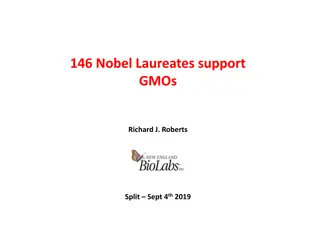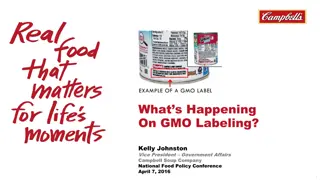GMOs in the EU: Public Perception and Regulatory Practices
The European Union's stance on GMO cultivation and marketing is characterized by a single approved product, MON 810, designed to protect maize against the European corn borer. While public awareness of GMOs is high, there is substantial opposition across EU Member States, leading to opt-outs based on various policy objectives. EFSA engages with stakeholders to ensure transparency but does not authorize GMOs. Feedback indicates that educational materials like videos and infographics are well-received, especially in academic settings.
Download Presentation

Please find below an Image/Link to download the presentation.
The content on the website is provided AS IS for your information and personal use only. It may not be sold, licensed, or shared on other websites without obtaining consent from the author.If you encounter any issues during the download, it is possible that the publisher has removed the file from their server.
You are allowed to download the files provided on this website for personal or commercial use, subject to the condition that they are used lawfully. All files are the property of their respective owners.
The content on the website is provided AS IS for your information and personal use only. It may not be sold, licensed, or shared on other websites without obtaining consent from the author.
E N D
Presentation Transcript
Matthew Ramon Matthew Ramon Team leader, External Engagement
Context Only one GM product MON 810 is cultivated commercially in the EU. This product's genetic modification aims to protect maize against a harmful pest the European corn borer. It was authorised in 1998. Besides cultivation, the placing on the EU market of GMOs in the food and feed chain is subject to EU authorisation. More than 50 GMOs are authorised in the EU for food and feed uses (covering maize, cotton, soybean, oilseed rape, sugar beet).
Public awareness of GMO/biotech is high in the EU EFSA Eurobarometer survey, 2019
Public opposition to to GMO is high in the EU, although it varies from country to country. EU Member States have the right to opt out based on grounds such as environmental or agricultural policy objectives, or town and country-planning, land use, socio-economic impacts, co-existence and public policy. A number of countries have invoked this right, including Bulgaria, France, Germany and Poland.
What did your organisation do? EFSA engages directly with stakeholder groups (industry, NGOs etc) using various platforms to ensure maximum transparency and accountability in its work GMOs. EFSA has produced a number of communication materials infographics, FAQs etc to explain the scientific basis of its work to consumers. EFSA does not authorise or advocate for GMOs/ biotechnology
What worked and what did not work for you? This is hard to evaluate without thorough pre- and post-publication surveying of opinions and attitudes. Two videos (GM plants and GM animals) and an infographic were widely viewed and we received positive feedback from different sources. In general, educational institutions value these simple, accessible materials.
What do consumers need to know? In your country, what kind of things consumers need (not want) to know, and how such information are provided. Again, practical examples in your country are important. Not applicable for EFSA
What do consumers want to know? In your country, what kind of things consumers want (not need) to know, and how the information can be provided? Again, practical examples in your country are important. Not applicable for EFSA
Messages for the toolkit Risk assessment of GMOs is science-based. Assessment methodologies, data collections etc are transparent. No products are authorised that have not been proven to be safe.
